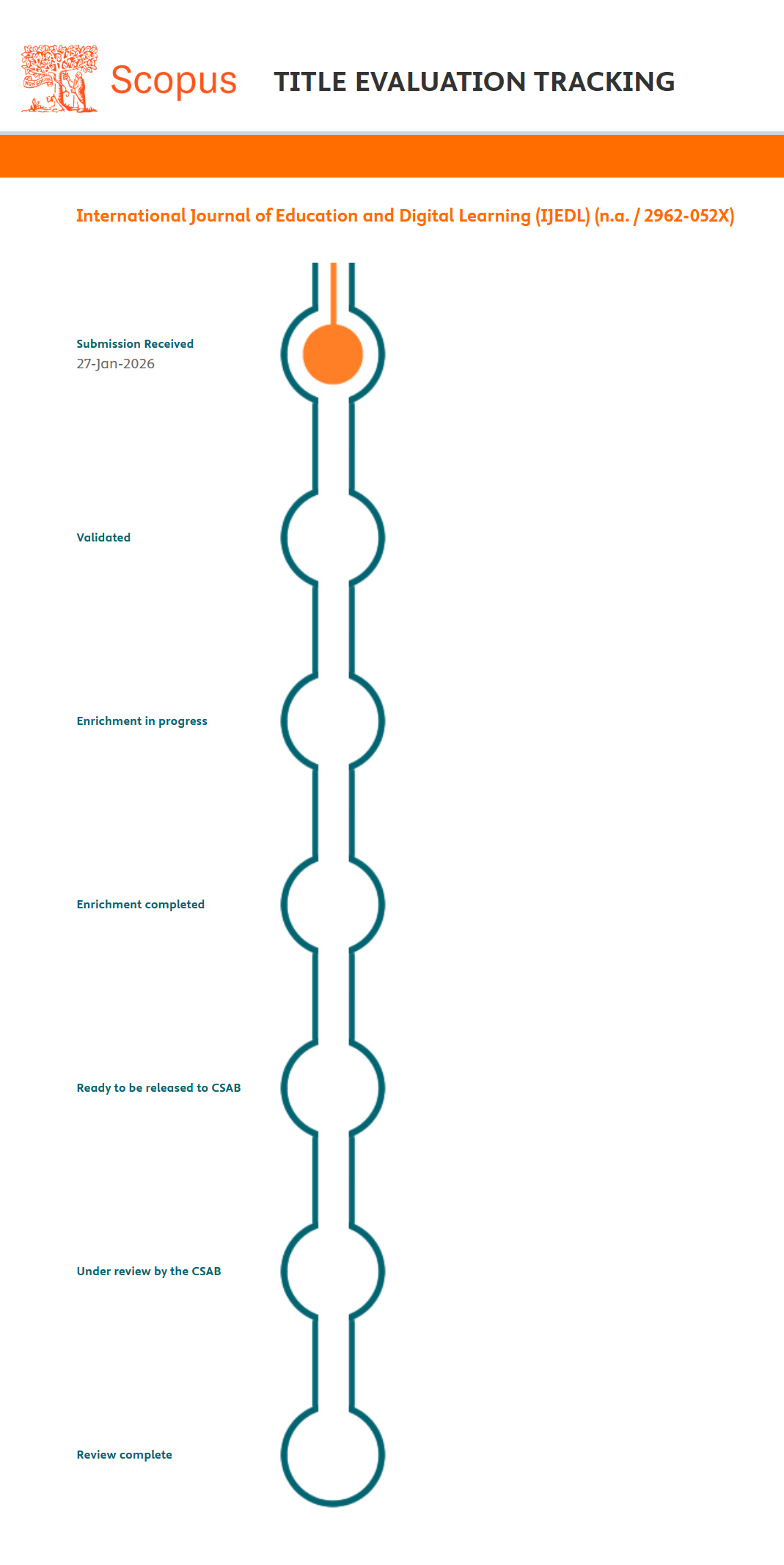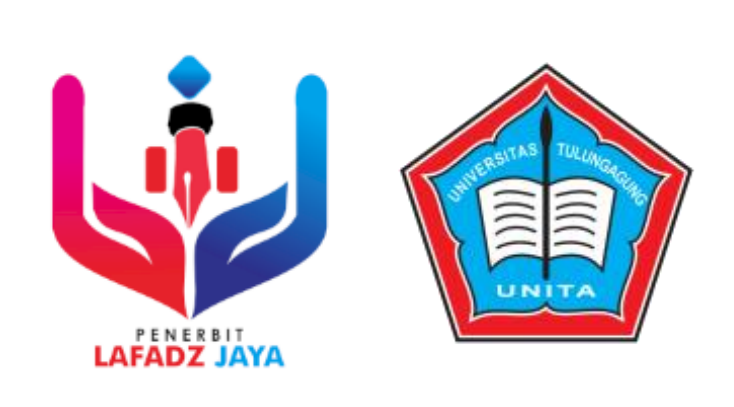Promoting Islamic Character Education in Inclusive Schools: Lessons Learned from the Supporting and Inhibiting Factors
DOI:
https://doi.org/10.47353/ijedl.v2i3.112Keywords:
Islamic Character Education, Inclusive SchoolsAbstract
Initiatives to advance fairness and inclusion in educational systems should be founded on an examination of specific settings. This article presents a framework that is founded on research and may be applied to such contextual studies. This piece is a qualitative approach and is presented descriptively. The school principal, teachers, and students in inclusive schools served as the study's primary sources. Students cited supportive relationships, positive teacher beliefs, positive school leader attitudes, supportive teaching practices, and accessibility as five aspects that encourage inclusive education. The findings reveal a variety of barriers and challenges in educational settings, including a lack of teacher preparation that is necessary to meet the needs of all students, the recognition that student diversity is a challenge, physical barriers, underutilization of available resources, and an educational response devoid of organizational and didactic strategies that do not assume responsibility for a fair and inclusive curriculum for all students. It is clear that Islamic character education requires constant habituation and intervention, refuted and carried out consciously by each component. The need for continued professional development and opportunities to improve pre-service teacher education programs are explored.
Downloads
References
Ahmed. (2017). Gender, Disability and Islam: Living with Visual Impairment in Bahrain. Int. J. Inspir. Resil. Econ. 2, no. 12: 384–395.
Aisah. (2020). Sekolah Inklusif Berbasis Karaker Nilai-Nilai Islam Di SMA Mutiara Bunda Bandung. Ideas J. Pendidik. Sos. Dan Budaya. 6, no. 3: 241–253.
Al-Aoufi et al. (2012). Islam and the Cultural Conceptualisation of Disability. Int. J. Adolesc. Youth. 17, no. 4: 205–219.
Ariastuti & Herawati. (2016). Optimalisasi Peran Sekolah Inklusi. J. Pengabdi. Pada Masarakat. 1, no. 1: 39–49.
Arif, M. (2024). Tantangan Dan Peluang Dalam Inovasi Pembelajaran Islam Di Era Digital. Global Education Journal 2, no. 1: 73–80.
Arifin, A. (2024). The Relationship Between Classroom Environment, Teacher Professional Development, and Student Academic Performance in Secondary Education. International Education Trend Issues 2, no. 2: 151–159.
Arifudin, O. (2022). Optimalisasi Kegiatan Ekstrakurikuler Dalam Membina Karakter Peserta Didik. JIIP-Jurnal Ilmiah Ilmu Pendidikan 5, no. 3: 829–837.
Arifudin, O. (2023). Pendampingan Meningkatkan Kemampuan Mahasiswa Dalam Submit Jurnal Ilmiah Pada Open Journal System. Jurnal Bakti Tahsinia 1, no. 1: 50–58.
Arifudin, O. (2024). Trends in Teaching Research with Technology in Indonesia. Journal of Multidisciplinary Global 1, no. 2 : 107–116.
Arriani et al. (2021). Panduan Pelaksanaan Pendidikan Inklusif. Jakarta: Kementerian Pendidikan, Kebudayaan, Riset dan Teknologi.
Atmojo dkk. (2020). Pelatihan Penanganan Anak Berkebutuhan Khusus Bagi Guru Sekolah Dasar Rujukan Inklusi. J. Abdimas BSI J. Pengabdi. Kpd. Masy. 3, no. 2: 244–252.
Azis dkk. (2021). Interaksi Sosial Anak Autis Di Sekolah Inklusi (Studi Sosiologi Pada Sekolah Inklusi Di Kota Makassar). Equilib. J. Pendidik. 9, no. 1: 77–85.
Bhatty et al. (2019). Disability in Islam: Insights into Theology, Law, History, and Practice. Marshall. 1, no. 13: 21–31.
Buli-Holmberg & Jeyaprathaban. (2016). Effective Practice In Inclusive And Special Needs Education. Int. J. Spec. Educ 31, no. 1: 16–26.
Chen. (2014). Structural Equation Modeling for Studying Adaptation of the Students with Disabilities in Inclusive Junior High Schools. World J. Educ. 4, no. 1: 11–23.
Djafri, N. (2024). Development Of Teacher Professionalism In General Education: Current Trends And Future Directions. International Journal of Teaching and Learning 2, no. 3 : 745–758.
Graham et al. (2023). Correction to: Overrepresentation of Indigenous Students in School Suspension, Exclusion, and Enrolment Cancellation in Queensland: Is There a Case for Systemic Inclusive School Reform?” Aust. Educ. Res. 50, no. 4: 1271–182.
Hasan. (2021). Evaluasi Kurikulum. Bandung: PT Remaja Rosdakarya.
Rahayu, Y. N. (2020). Program Linier (Teori Dan Aplikasi). Bandung : Widina Bhakti Persada.
Ruairc et al. (2013). Leadership for Inclusive Education: Vision, Values and Voices. Sense Publ. 1, no. 1: 71–80.
Shumaker & Heckel. (2017). Kids of Character: A Guide to Promoting Moral Development. Bloomsbury Academic.
Hanafiah, H. (2022). Implementation Of Character Strengthening In Boarding School Students. International Journal of Education and Digital Learning (IJEDL) 1, no. 2: 49–54.
Haris, I. (2023). Pengenalan Teknis Penggunaaan Software Turnitin Dan Mendeley Dekstop Untuk Meningkatkan Kualitas Karya Ilmiah Mahasiswa Baru. Journal Of Human And Education (JAHE) 3, no. 2: 172–78.
Hoerudin, C. W. (2023). E-Learning as A Learning Media Innovation Islamic Education. QALAMUNA: Jurnal Pendidikan, Sosial, Dan Agama 15, no. 1: 579–594.
Iba dkk. (2021). Pengaruh Motivasi, Budaya Organisasi, Lingkungan, Dan Kepuasan Kerja Terhadap Kinerja Guru SMA Kota Juang. J. Akuntabilitas Manaj. Pendidik. 9, no. 1: 75–84.
Lestari. (2022). Metode Pendidikan Karakter Pada Anak Berkebutuhan Khusus (ABK) Di Sekolah Inklusi RA Zidni Ilma Sukoharjo. Inklusi 6, no. 1: 11–23.
Nuary, M. G. (2024). Teacher Strategies In Instilling Nationalist Values In The Millennial Generation In The Technological Era. International Journal of Teaching and Learning 2, no. 4: 954–966.
Paturochman, I. R. (2024). Pluralism And Multiculturalizm Education. International Journal Of Society Reviews 2, no. 3: 564–573.
Ramli, A. (2024). Analysis of the Influence of Organizational Commitment on Work Discipline of Public High School Teachers. Journal on Education 6, no. 2: 12927–12934.
Rifky, S. (2024). Professionalism Of Educators In Learning Development. International Journal of Teaching and Learning 2, no. 2: 579–588.
Sanulita, H. (2024). Analysis Of The Effectiveness Of Audio Visual Learning Media Based On Macromedia Flash Usage On School Program Of Increasing Student Learning Motivation. Journal on Education 6, no. 2 : 12641–12650.
Sappaile, B. I. (2024). The Role of Artificial Intelligence in the Development of Digital Era Educational Progress. Journal of Artificial Intelligence and Development 3, no. 1: 1–8.
Sembiring, I. M. (2024). Pendidikan Agama Islam Berwawasan Global Sebagai Dasar Paradigma Dan Solusi Dalam Menghadapi Era Society 5. Innovative: Journal Of Social Science Research 4, no. 2: 305–314.
Steinbeck. (2016). Inclusive Schools - Inclusive Teachers? How Much Special Needs Preparation Does a Pre-Service Teacher Need to Teach Successfully in an Inclusive School System?,” In Inklusion in Deutschland Und Australien. Wiesbaden: Springer Fachmedien Wiesbaden. 1, no. 1: 125–139.
Downloads
Published
How to Cite
Issue
Section
License
Copyright (c) 2024 Fitri Meliani, Adang Hambali, Qiqi Yuliati Zaqiah, Mohammad Sulhan

This work is licensed under a Creative Commons Attribution-ShareAlike 4.0 International License.












